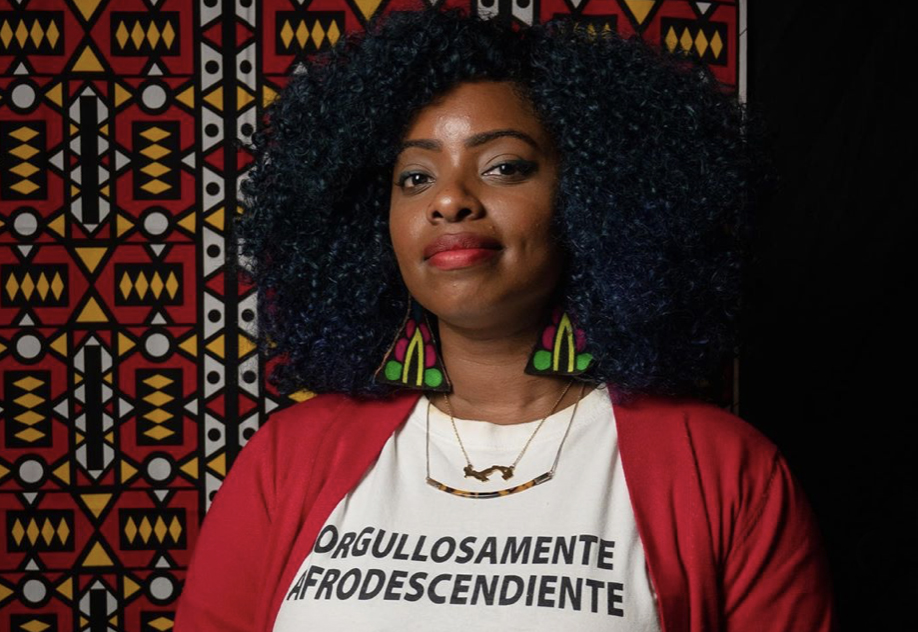‘Not just a trending thing’: Afro-Latinos work to establish their place amid growing national interest in race, identity

BETHESDA, Md. — When Telemundo reached out to Dash Harris for an interview about her documentary series this summer, she wasn’t impressed.
Harris, who is Black Panamanian, traveled across Latin America to produce “NEGRO” after quitting her job in mainstream media. The series — a passion project she self-funded — highlights the African diaspora in Latin America and the Caribbean, exploring issues of identity, colonization and racism across cultures.
In today’s news cycle, amid ongoing protests and demands for racial equality, media outlets are scrambling to feature Black perspectives. But Harris first started producing her series nine years ago. And back then, she said, mainstream media outlets weren’t interested.
“They haven’t been interested in us for 500 years,” Harris said. “Why are you only now interviewing me about it?”
After Minneapolis police officers killed George Floyd, people across the country started to pay increasing attention to how systemic racism manifests in all sorts of institutions, including the media. For Afro-Latino journalists and content creators — many of whom say they’ve felt historically pushed to the margins — the movement has suddenly thrust their voices into the spotlight. Some, like Harris, are frustrated that it took so long. Others wonder if they’ll be there to stay.
The question of who is listened to in conversations about race is salient — especially today, said freelance journalist Janel Martinez. Though many mainstream media institutions have begun to reckon with their own systemic racism and patterns of anti-Blackness, the industry’s historical lack of diversity has pushed many Afro-Latino journalists and content creators to take matters into their own hands.
“Black stories in Latin America, the Caribbean and globally, are not just a trending thing. Black existence is a daily thing,” Martinez said. “Black people don’t just exist when something is trending.”
Growing up, Martinez loved to consume media — all of it, any kind. She parked herself in front of the television to watch the nightly news, and would catch Oprah’s 4 p.m. show before doing her homework. She devoured sitcoms, tore through magazines.
She consumed a lot of Black media, but when she looked at publications like Latina magazine or People en Español, she didn’t see herself or her family reflected in their pages. Her frustration with that lack of representation prompted her to create her own platform. In 2013, she launched “Ain’t I Latina?”— a digital space for content about Afro-Latinas.
Martinez is glad to see that conversations about race are now at the forefront of more mainstream outlets, but she remains critical of whose voices are prioritized and whose are still excluded.
“It’s been really fascinating to see the amount of platforms that now want to discuss this, when so many people — brilliant, independent creators — have been talking about this for over a decade,” Martinez said. “It’s kind of insulting.”
And though media outlets are now eager to hear from Afro-Latino freelancers and independents like Harris and Martinez, their perspectives are usually the first to be cut or rejected from mainstream media outlets, Martinez said. There’s a fear that as quickly as the spotlight has found them, the media’s interest will fade.
Unpacking the ‘mestizaje industrial complex’
Afro-Latino creators fall into a particularly complicated space when it comes to how race and ethnicity are defined and tracked in the United States.
About a quarter of Hispanics identify as Afro-descendent, according to the Pew Research Center. But Martinez and Harris said many Afro-Latinos often feel pushed to the margins of U.S. Latino identity. Many Americans — including those in the Black community and non-Black Latinos — too often seem surprised by the fact of their very existence.
Part of the reason Afro-Latinidad is complex is because Latinidad is a complicated concept too, said Ed Morales, a journalist who teaches at Columbia University’s Center for the Study of Ethnicity and Race. Historically, he said, many Latin American countries have sought to perpetuate the narrative of having only one mixed “race,” with few countries even collecting racial demographics.

“They tended to erase African and Indigenous identities in favor of creating this national identity that was ideally a mixed race person, a mestizo person, preferably a lighter skinned person,” Morales said. “So that’s the kind of attitudes that are inherited.”
Harris calls it the “mestizaje industrial complex,” or the “mestizaje myth” — this idea that countries made up of people mixed from all backgrounds can’t be racist. But not all those mixed heritages are valued equally, she said, and the narrative is used to silence Black voices and criticisms.
For some U.S. Afro-Latinos, that can result in feeling a need to over-emphasize one part of their identity, Latinidad, over another, Blackness. Of those U.S. Latinos who identified as Afro-descendent in Pew’s survey, only 18 percent identified their race or one of their races as Black.
In the United States, that sentiment can carry over into the mainstream media caricature of one, mainstream Latina archetype: A light-skinned brunette, like Jennifer Lopez or Salma Hayek.
“It’s cyclical,” said Ecleen Luzmila Caraballo, an editor at Remezcla. “Our idea of what Latinidad means and looks like is based on what we see on TV, which is so erroneous and far from what it actually means.”
When the personal is political
Dash Harris, who now lives in Panama, grew up in New York surrounded by Black and Central American families. She never questioned or felt she had to grow into her identity as an Afro-Latina — it simply was, and should be, the norm, she said.
But when podcaster Yovy Daniels first moved to the U.S. from Panama more than a decade ago, she probably wouldn’t have felt comfortable identifying as Afro-Latina.
“I would’ve felt bad,” Daniels said. “Like, why do we need another label? Why do you need to divide us? Aren’t we all Latinos?”

Since then, she realized identifying as Afro-Latina is about embracing the uniqueness of their identities, she said. By doing that, they ensure their voices are heard.
Many Afro-Latinos have to take a personal journey to understand their own history and find what they identify with, Caraballo said.
It’s important to keep in mind that the African diaspora in Latin America is enormous and diverse, Harris said. And despite narratives of mestizaje and racial harmony, slavery was instrumental to the region’s early economy, and most countries harbor similar systems of anti-Blackness as in the U.S., like police brutality and discrimination. The media reinforces those racist systems.
Harris isn’t sure that can be dismantled so quickly. But Caraballo is a little more hopeful.
Though Caraballo didn’t consciously limit herself, the lack of media representation probably affected her at least a little, she admits. She went into journalism intending to work in broadcast, where Black and Afro-Latino reporters are scant. Instead, she’s worked mostly in digital media.
Now, the recent movement has made her reconsider, Caraballo said.
Recruiting Afro-Latinos and making institutional changes can help shift those narratives to create the media we want our kids to grow up seeing, she said. But in order for that to happen, Latino media outlets have to take criticism to heart.
“People don’t speak out on things unless it matters,” Caraballo said. “If it’s being called out, if someone is telling you that you need to change it, it’s because they care.”
Carmen Molina Acosta is a junior at the University of Maryland majoring in journalism with a minor in international development and conflict management. She has worked as a special projects editor for The Diamondback, Maryland’s independent student newspaper, and is a fellow with the Emma Bowen Foundation. Reach her at carmolinacosta [at] gmail [dot] com and on Twitter @carmenmolina_a.
Bio text
Wonderful, very interesting thumbs up!